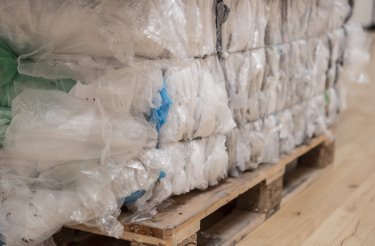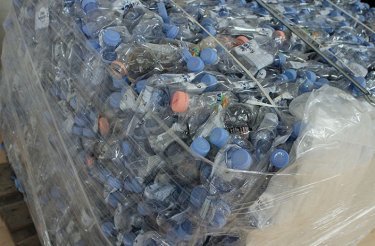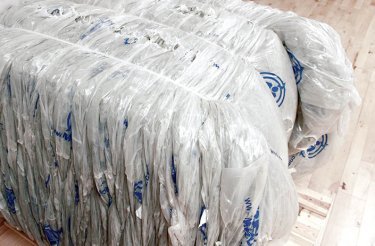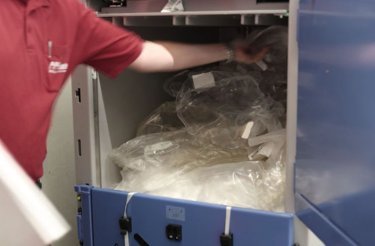
Is it possible to bale plastic?
Explore the possibilities of baling plastic with our detailed guide, designed to enhance your understanding of balers and compactors.
Is Baling Plastic Possible?
Yes, plastic is one of the primary materials that can be effectively baled. Alongside plastic, materials such as cardboard, aluminium, paper, and non-ferrous substances are also suitable for the baling process. Before initiating the compression of materials, it’s crucial to ascertain the compatibility of the machine with specific types of plastic, as some balers are designed to handle certain varieties.

Types of Plastic Suitable for Baling
The diversity in plastic types necessitates the use of specific balers tailored for different plastic materials:
LDPE (Low-Density Polyethylene): Items such as plastic bags (e.g., for frozen foods and bread) and squeezable bottles (e.g., for honey and mustard) are compressible using LDPE balers. These balers, which vary in size and compression ratio, are predominantly used in commercial, industrial, and service sectors to secure goods on pallets.
PVC (Polyvinyl Chloride): Balers designed for PVC are capable of compressing sturdy and rigid plastics found in electronic devices, TVs, computers, and various accessories. Given the rigidity of PVC, these materials require balers with a high pressing force and durable construction.
PET Bottles and Containers: Common in the food industry, PET bottles and oven-ready food trays represent a significant challenge due to the extensive use of plastic. To efficiently compress these containers, businesses must select appropriate balers and prepare the bottles (e.g., by puncturing or unscrewing lids) prior to compression.

Understanding the Baling Process
The baling process compacts plastic into dense blocks or bales, significantly reducing the volume of plastic waste. This not only optimizes storage and transportation but also decreases waste disposal costs and transforms waste into marketable commodities. The stability of the baled blocks is maintained using cords, hoops, wires, or wrapping.

Why Do Businesses Opt for Baling?
Faced with the daunting task of managing large volumes of non-recyclable plastic, companies are turning to balers as a solution to avoid the costly and labor-intensive option of landfill disposal. With global plastic waste figures soaring to 353 million metric tons, consumer expectations are shifting towards sustainability.
Businesses, recognizing the importance of a positive environmental image, are adopting baling as a method to manage plastic waste responsibly, aligning with the demand for greener practices. This approach not only contributes to a more sustainable future but also bolsters a company’s reputation among eco-conscious consumers.

Have a question?
Get in touch today to learn more about how Mil-tek can help your business save time, space and money by better handling waste
Get info about a product or have a chat with one of our local reps. Let us know what you need so the right person can get in touch.